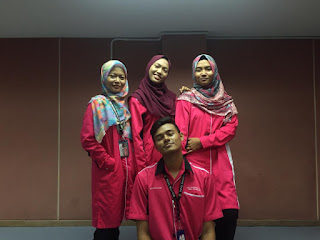Did the team work well together or was it dysfunctional? If the latter, how was this dysfunctionality eventually managed, if at all (if it was applied in the team)?
Overall, this team is fine, but problems? Nah, it is actually good if there is some problem arises so that my team know where can we improved and which part should be fixed. Have you heard about Belbin's Theory?
But what is actually the theory? It consists of 9 roles; each team needs access to each of the nine Team Role behaviours to become a high performing team. However, this doesn't mean that every team requires nine people! Most people will have two or three Team Roles that they are most comfortable with, and this can change over time. Each Team Role has its strengths and weaknesses, and each has equal importance. However, not all are always required at the same time - it is important to first look at the team objectives, and work out which tasks need to be undertaken. Once this has been done, discussions can take place regarding which and when each Team Role behaviour should be utilised.
In my observation, we kinda used Belbin's Theory, you want to know why?
Iffa: She has the character of Implementor, Resource Investigator and Monitor Evaluator. She gives a lot of judgement and look out for any errors, she ensure that our team get any help from others if within ourselves are not enough information.
Piya: She is definitely a teamworker and a shaper. She always check our progress and remind us if we forgot to do our task. Plus, she's willing to to do anything that can help, example, she will drive and help to buy things that needed for our prototype.
Farid: As he is the only guy in our group, he acts as specialist especially when we needed to cut out prototype or do something that requires extra cares.
Puteri: As for me, I have the Completer Finisher type because I will re-check all the task and edit or fix immediately if there is any problem and also, I couldbe the Plant of the team, I love to give new & fresh ideas!


Comments
Post a Comment